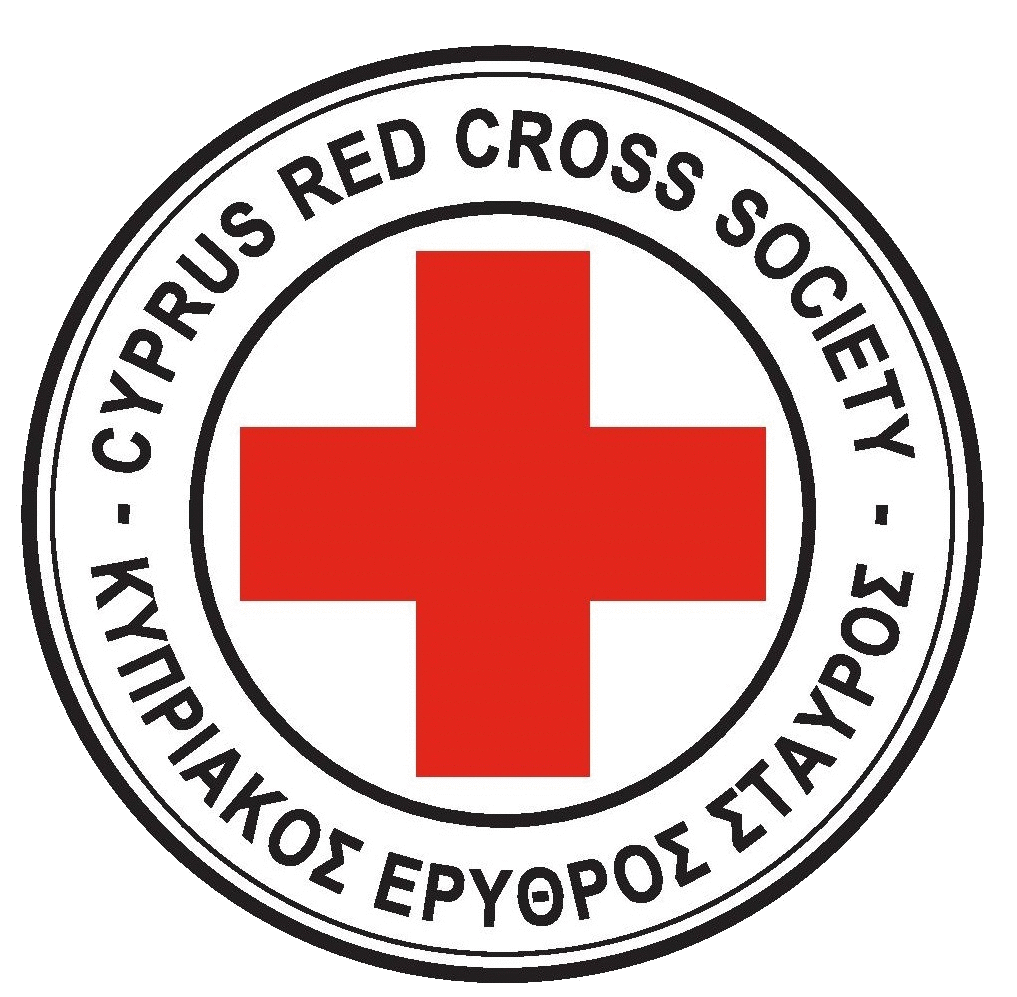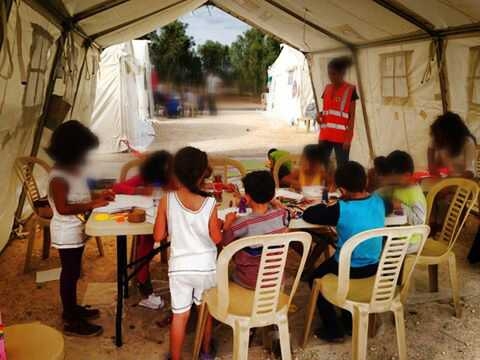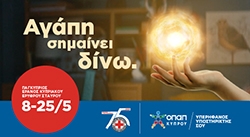Humanitarian assistance to Syrian refugees
Report on the arrival of 345 refugees from Syria to Cyprus
Thursday, 25 September 2014
Thousands of migrants fleeing conflicts in the Middle East and North Africa, attempt to cross the Mediterranean to reach Europe, often in unseaworthy vessels, and hundreds have died at sea.
An estimated 9 million Syrians have fled their homes since the outbreak of the civil war, in March 2011, taking refuge in neighbouring countries or within Syria itself.
Cyprus, being an island and about 120 miles away from Syria, was not one of the Syrian refugees destination countries, till the 25th of September 2014, when 345 of them, heading for Italy, were rescued from the sea and brought to Cyprus.
The situation
On Thursday, 25 September 2014, during the early morning hours, an old fishing vessel, carrying 345 refugees from Syria, while sailing about 50 nautical miles from Paphos, in the Southwest of Cyprus, sent out a distress signal, because the vessel had been caught in rough seas and they were in danger. The refugees had been travelling for three days and they were heading for Italy.
A Cypriot cruise ship, returning from Greece, was asked by the Cypriot Rescue and Search Centre, to change its course and urgently harry to their rescue. The cruise ship, and its crew of 230 members, after a long struggle against the rough sea, managed to bring them on board, at about 2.30 p.m. and while heading for the port of Limassol, provided them with food, blankets, medical care and whatever else they needed. The ship arrived at the port at 8.30 p.m., where the Cyprus Government authorities, members of the Red Cross and other organizations, were waiting for them in order to help them go through the migration procedures, the necessary medical examinations and cover their immediate humanitarian needs.
Unfortunately, their disembarkation delayed till 2.30 a.m., next day, because the refugees refused to leave the ship, demanding to be transferred to Italy, which was their original destination, and for which transfer they had paid 6000 USD, each. There was tension and distrust during the long negotiations during which, the role and mediation of the Red Cross representatives has proved of significant importance, because it appeared that the refugees trusted the Red Cross staff much more than the Government officials.
Finally, because of the small number of staff members, the migration and medical procedures took much longer than expected and it was only at 4.30 a.m when a bus left the port, transferring the first group of refugees to a newly opened Reception Centre, near the village of Kokkinotrimithia, ten kilometers away from Nicosia, where members of the Civil Defense and the Red Cross were waiting to offer them food, dry and clean clothes and a place to sleep.
CRCS Action
On Thursday, 25 September 2014, at 11.00 a.m., the Cyprus Red Cross, in its capacity as an auxiliary body to the Government and member of the Government Emergency Plan “ESTIA”, received an urgent call to participate in a meeting at the Ministry of Interior, which was about to discuss the management of the problem of the arrival of approximately 345 refugees from Syria.
While the meeting was still in progress, instructions were given and the CRCS immediately activated its Emergency Action Plan and started mobilizing its Disaster Management Team, staff, members and volunteers. The three areas of mobilization were the Nicosia HQs, the Limassol port, where the ship with the refugees was expected and the Kokkinotrimithia Reception Centre, just outside the capital, Nicosia.
At 12.00hrs, members of the CRCS Disaster Management Team were already at the Kokkinotrimithia Reception Centre, for an assessment of the needs and preparation for the arrival of the refugees. They assisted the members of the Civil Defense in putting up the tents and the other installations and organised the Red Cross Assistance Distribution Centre (RCADC), from where the whole operation would be coordinated.
At the same time, at the CRCS HQs, other Red Cross volunteers started preparing the necessary supplies to be sent at the RCADC for distribution, including clothing, shoes, hygiene kits, personal care items, toys etc. The First Aid, Psychosocial Support, Tracing and other teams were also mobilized and started arriving at the CRCS HQs.
By 19.00 hrs, members and volunteers of the Limassol Branch were already present at the Limassol port, ready to welcome the refugees and offer them humanitarian and any other assistance.
At 20.00 hrs, a large group of CRCS members and volunteers, were already at the Kokkinotrimithia Centre, organizing the RCHDC and the supplies storage area, putting up camp beds, distributing to the tends betting, towels, and items of personal hygiene, to be ready and to avoid delays, as the first refugees were expected in the early morning hours and would surely be exhausted and tired.
At 22.00 hrs the CRCS received additional information about the number of the refugees, which were 233 men, 60 women and 52 children, some of them unaccompanied. 195 0f them were Syrians and 150 Palestinians. It was also known that the refugees were still on the ship denying to disembark, which meant that their arrival at the Centre was also to be delayed.
As the arrival time was not sure, the CRCS volunteers remained at the Centre for the whole evening waiting for the first to arrive. It was 5.30 in the morning when the first bus arrived, and the Red Cross volunteers, instead of offering humanitarian assistance as they were expecting, they had to be involved in new negotiations with the refugees, who denied to get out of the bus, when they realized that they would be accommodated in tents in a rather unfriendly, new and rather isolated Centre. Finally, after a very long waiting, at approximately 6.00 a.m., the first 70 refugees, entered the Centre and after being registered, they were taken to the RCADC, where they were given dry clothes and shoes and food before retreating to their tents to sleep. After all, the small number of the first group, allowed quick service delivery and no delays, something which was really important, given that they were all very tired after their long and exhausting adventure
Friday, 26 September 2014
The gradual arrival of refugees continued for the whole morning of Friday the 26th. In order to meet the increased demands and to comfort the volunteers who have been working for the whole previous night, the CRCS called in additional volunteers, prepared a three-day shift programme and renewed its supplies.
While covering the first urgent needs the CRCS staff evaluated the situation and also based on the requests of the assistance recipients, tried to satisfy all needs and also respond to specialized requests taking into consideration not only their gender and age, but also their cultural preferences, especially of women who demanded scarves and the older ones, long black robes, which were not so easy to find.
Based on the needs and the evaluation results, CRCS, in cooperation with the other organizations involved, especially the Civil Defense, which had the overall responsibility of the Centre, organized its support services and made arrangements to have them available as long as they will be needed.
These services include:
- Provision of clothing footwear and personal hygiene items. Their envisaged long stay and the changing of weather increased the demands, which are gradually individualized and specialized, including everything from shoes, socks and slippers, to sleeping clothes and underwear, jackets and coats up the sun care creams, shawls and hats.
- Psychosocial support services. It was expected that such a dreadful experience would possibly affect psychologically at least some of the more vulnerable refugees. Among other, at least two suicide attempts had been reported. Therefore the CRCS PSS team, supported by specialized professionals, was there offering their services on a continuous basis. In addition to individual intervention two discussion groups, one for men and one for women, were organised during which the participants could express and share their experiences, concerns and wishes, and also tell their stories. Referrals to specialists were made for those who needed it.
- Children activity centre. As 52 of the refugees were children an activity centre supported by an art therapist and many volunteers, was set up, providing a safe space for free time activities and the opportunity to express and make sense of their experiences, through the arts and play.
- Support to unaccompanied minors. As nine of the children were unaccompanied, arrangements were made to be taken to a special hostel for unaccompanied children, in Larnaca, operating under the responsibility of the Civil Services. Some older unaccompanied children,aged 16-18, refused to go to the hostel and went on a hunger strike. The Red Cross made arrangements for them to stay with the rest of the group.
- Interpretation services.
- Tracing services. The CRCS received a lot of tracing requests from relatives of the refugees from Syria and many European countries. All traced persons have been found and their relatives have been informed accordingly.
- Restoring family links through telephone. CRCS, recognizing the refugee’s agonizing need to contact their relatives in Syria and other countries (even Brazil), from the first day put at their disposal mobile telephones through which they were able to speak to their family members more than one time each.
- Recreation programme. After the first busy days and when things were getting better and the life rhythm slower, in cooperation with the Centre’s administration, a special recreational programme, including projection of films in Arabic, band and other music, tasting of Cypriot sweets etc, was arranged in order to give content and quality to the refugee’s life.
- Legal advice services. Although the main concern and wish of the refugees was to be able to leave Cyprus and go to a European country, and they were continuously asking for help and advice towards that end, because of the complexity of the problem, CRCS was not in the position to help them substantially. They were although helped to visit the Embassies of the country they wished to go and explained of the need to secure a status in Cyprus, otherwise it would be difficult for a foreign country to accept them and if they would manage to leave Cyprus illegally, in case of arrest in any European country, according to the provisions of the Dublin Agreement, they should be sent back to Cyprus.
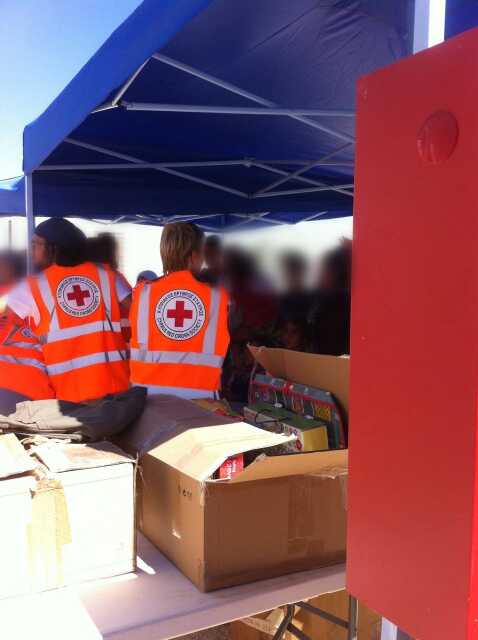
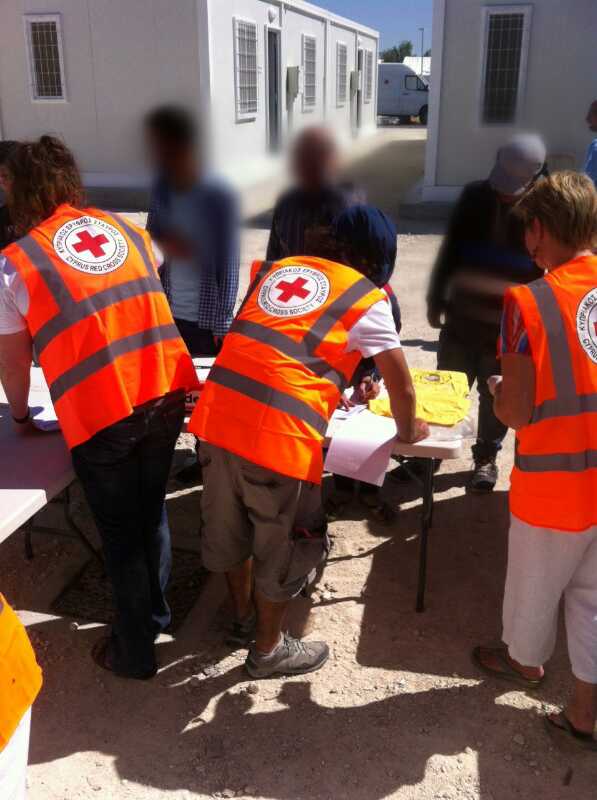
While this report is coming to its end, the drama of the Syrian refugees in Cyprus continuous and it seems that it will continue for long. Although they were given by the authorities permission to stay in Cyprus for two months, in order to decide what to do, nobody seems to be willing to apply to the Cypriot authorities and ask for asylum or another status. They insist that they should be facilitated to leave for Europe, which is not possible without a visa from the country they wish to go.
Unfortunately, when they leave the Centre, and most of them do so daily, they are approached by smugglers and other people who want to exploit them, who promise to help them leave Cyprus illegally or to supply them with forged documents. Already, approximately 70 refugees, have crossed to the occupied part of Cyprus and are trying or have already left illegally for Turkey.
The Cyprus Red Cross Society, in cooperation with the Palestinian Ambassador in Cyprus, are trying to persuade them to be patient, abide with the Cypriot and European legislations and avoid illegal actions, which may result to loosing, not only their money, but also their life.
In between the CRCS, regardless the considerable cost, will continue to provide its support as long as it is needed, hoping that they will finally be allowed to be united with their relatives in Europe or elsewhere, as the option of returning to Syria is rejected by all of them.
